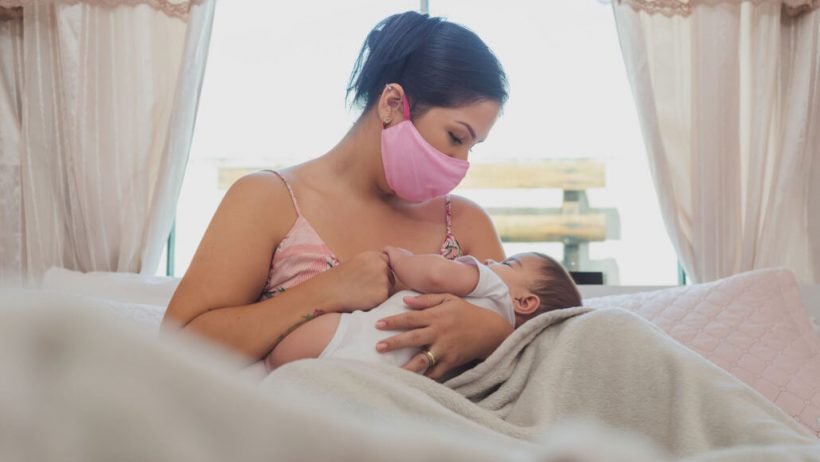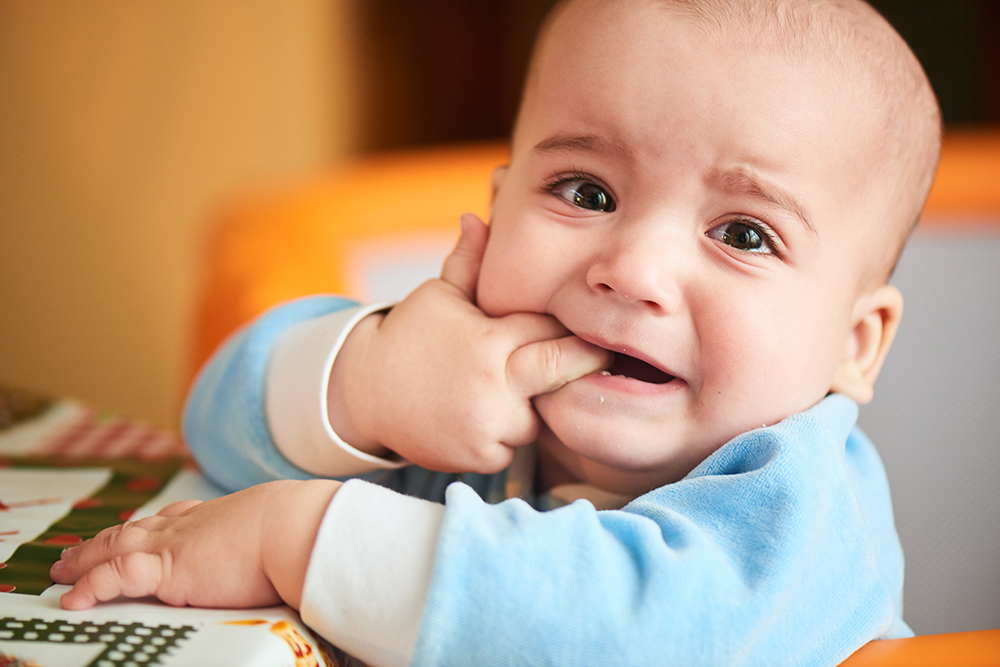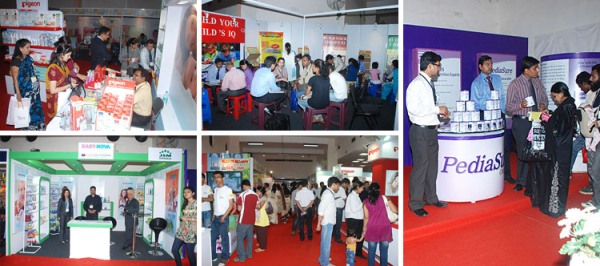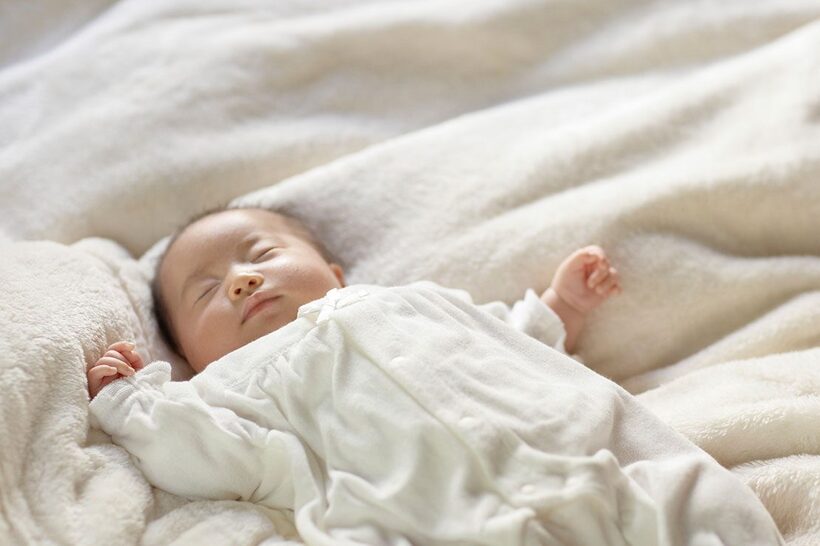The article has been written by Dr Ranjana Sharma – Obstetrician, Gynaecologist Apollo Cradle, Delhi
Coronavirus or COVID-19 is a respiratory illness that spreads by droplets of the infected person, which is released by coughing or sneezing. If you are a new mother with confirmed symptoms of this ailment, which include, symptoms of cold, chills, muscle pain, headache, vomiting, nausea, tiredness, loss of smell or taste, fever, and diarrhoea, and have tested positive for Covid-19 you must
Proceed with caution and take the following steps to avoid spreading the virus to your little one.
- Always wash your hands or sanitize them thoroughly before touching your baby.
- Wear a mask whenever you are near the baby, even while breastfeeding.
- Wash your hands before touching the bottle or any of its parts or even the pump.
- Clean the bottle and the pump after use and wash your hands before cleaning it.
You must understand that breast milk is what’s best for your baby and not the formula. It offers your little one all the necessary nutrients and helps boost his or her immune system.
But, if you are infected, you must discuss it with your healthcare provider as they will guide you in the right direction.
Here are some precautions you can take that can help you on this journey.
Hygiene Is Mandatory
You must not only wash your hands or wear a mask before touching your baby, but you must clean all the surfaces, bottles, and even the pump with an alcohol-based disinfectant regularly. If you are worried, you can pump the breast milk into a bottle and ask your partner or a member of your family to breastfeed your child.
As of now, it is believed that the virus doesn’t spread via breast milk. However, there is not enough data to confirm it. Therefore, keep your healthcare practitioners in the loop. Discuss everything with them before making a decision.
Should I Continue To Breastfeed My Baby?
If you got infected with the virus shortly before you gave birth or while you began breastfeeding, you will in fact produce additional immune factors (antibodies) in the milk, which will only boost the baby’s immune response.
So, what does it mean? That at a time like this, you cannot feed your baby formula unless it is absolutely necessary because it doesn’t help build the immunity whereas breastmilk, even when you are infected, can equip your baby with immune-boosting factors protecting it from the virus. However, you must consult your doctors as they will suggest the best way to go about it.
Clean Your Breast Pump
If you have contracted the virus or are suffering from its symptoms, you will likely be put in isolation for 14 days. During this time, if your doctor permits feeding breast milk to your baby, you must follow your doctor’s instructions and continue breastfeeding or use a pump and ask your partner or a member of your family to feed the baby. Remember, wear a mask and wash your hands before using the pump.
Also, the pump must be cleaned after every use thoroughly. You can sanitize them it with steam or allow it them to sit in hot water for 5 minutes. Finally, clean the breast before putting the pump on it and only then use it.
Maintain Distance
We can understand it might not be easy to keep a distance from your little one, but that’s for his or her well-being. Try to limit coming face-to-face with your child. Always carry a tissue whenever nearby and cough or sneeze in it and immediately throw away the tissue in the dustbin. Place the dustbin in an area of the house, which no one visits to ensure no one else contracts the virus. Please maintain at least a six feet distance from the baby when not feeding.
Precautions While Feeding Formula
Although breastfeeding is the best way to feed your child, it is possible that some women are too ill to feed the baby highly infected or maybe are not able to produce enough milk. Remember, when it comes to the formula feed, follow all the instructions given on the package perfectly and wash and rewash the bottles thoroughly after every use. To sterilize after you wash them thoroughly put them in boiling water after cleaning.
These precautions are just for a few days until you feel better and get cured of your symptoms. If you have more doubts, please speak to your healthcare providers as they will be able to help you better depending on your situation.
A Few Tips About Breastfeeding
Breastfeeding journey should never create blocks in a woman’s life, or turn it into a disturbing experience. There are many handy little things available today that can make a world of difference for Moms while breastfeeding their little ones.
Night-time Nursing- Bras and Pillows
Many moms choose to wear nursing bras during their night feeding where they wear bras which has a cross-over pattern where you just move one flap to the side. Also, we know, breastfeeding puts a good amount of strain on the neck, shoulders and back, especially during the early days as the mother tries to get the latch correct. A nursing pillow makes this so much easier! It is placed on the mother’s lap so that the baby is easily raised to the level of the mother’s breast
Foot Rest
Using a footrest brings the knees higher up, which is the ideal position for breastfeeding. It reduces strain on the knees and legs so that the mother can sit back and relax without having to struggle to make the baby reach her breast.
Nipple Cream
Some moms find that when the baby feeds for longer periods, it can be quite painful, which scares them when the next feeding time comes up! Get a nipple cream made of natural ingredients that’s safe for nursing mothers and babies.
Breast Compress
Warm up the compress and place it on your breast, around the nipple. The heat opens up the milk ducts and encourages milk letdown. If a mom is dealing with engorgement due to oversupply, cool or freeze the compress – it will offer soothing comfort.
Lactation Foods
Keep your supply up and running throughout your breastfeeding journey by including breast milk boosting foods early on in your diet. You can try lactation cookies or a lactation booster in your milk – these are easy ways to get the nutrients you need.
We hope these tips help. If you have any questions, please talk to us in the comments below and we will get them answered by an expert.





















